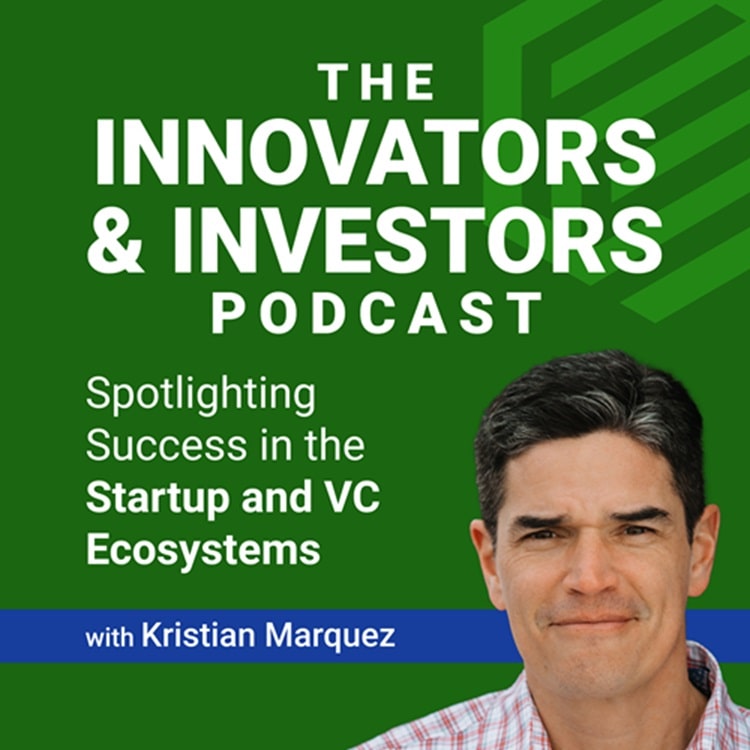The Fundraising Landscape: A Founder’s Evolving Challenge
 The venture capital landscape has shifted significantly in recent years. What was once a frothy market, characterized by abundant capital and high valuations, has become more discerning and data-driven. Founders are now facing increased scrutiny, longer fundraising cycles, and a greater emphasis on profitability and sustainable growth. This new reality demands more than just a compelling product and a solid pitch deck. It requires resilience, adaptability, and a robust support system.
The venture capital landscape has shifted significantly in recent years. What was once a frothy market, characterized by abundant capital and high valuations, has become more discerning and data-driven. Founders are now facing increased scrutiny, longer fundraising cycles, and a greater emphasis on profitability and sustainable growth. This new reality demands more than just a compelling product and a solid pitch deck. It requires resilience, adaptability, and a robust support system.
In the past, securing seed funding might have been enough to fuel rapid expansion. Now, investors are looking for tangible evidence of traction, strong unit economics, and a well-defined go-to-market strategy. Series A rounds are becoming increasingly challenging to secure, with investors demanding more robust revenue models and a proven ability to scale. This means founders need to be exceptionally well-prepared and have access to the right resources to support their journey.
The Need for Venture Assistance: More Than Just Capital Infusion
Raising capital is a means to an end, not the end itself. Founders need support to effectively deploy that capital and build a thriving business. This support comes in many forms, and often, it’s the non-monetary assistance that makes the biggest difference between success and failure. Let’s delve into these critical areas:
Mentorship: Guiding the Ship Through Stormy Seas
One of the most invaluable forms of support a founder can receive is mentorship. A seasoned mentor can provide guidance, advice, and a fresh perspective on the challenges and opportunities that arise during the early stages of a startup. They’ve “been there, done that” and can help founders avoid common pitfalls, make better decisions, and navigate the complexities of the startup ecosystem.
Real-World Scenario: I worked with a founder whose initial product roadmap was overly ambitious, bordering on unrealistic. They wanted to conquer the entire market in the first year. A mentor with experience scaling SaaS companies helped them prioritize features, focus on a specific niche, and develop a more sustainable growth strategy. This ultimately saved them time, money, and prevented them from spreading themselves too thin.
A good mentor will challenge assumptions, provide honest feedback, and help founders stay focused on their core mission. They can also act as a sounding board for new ideas, help refine business models, and provide introductions to potential investors, customers, and partners.
Finding the Right Mentor: A Strategic Approach
Finding the right mentor is crucial. It’s not just about connecting with someone who’s successful; it’s about finding someone whose experience and expertise align with your specific needs and goals. Here are some tips for finding the right mentor:
- Identify your key areas of need: What are the biggest challenges you’re facing? What skills or knowledge are you lacking?
- Network strategically: Attend industry events, join relevant online communities, and reach out to people whose work you admire.
- Be clear about your expectations: What are you hoping to get out of the mentorship relationship? How often do you want to meet? What topics do you want to discuss?
- Be respectful of your mentor’s time: Come prepared for meetings, be responsive to their feedback, and show gratitude for their guidance.
Network Access: Opening Doors to Opportunity
In the startup world, who you know is often as important as what you know. Access to a strong network can open doors to potential investors, customers, partners, and advisors. Venture assistance programs often provide founders with access to curated networks of industry experts, investors, and other successful entrepreneurs.
Practical Application: A well-connected venture assistance program can facilitate introductions to venture capitalists who specialize in your industry. This is far more effective than cold-emailing investors and hoping for a response. These introductions come with a level of credibility that can significantly increase your chances of securing funding.
Leveraging Network Access: A Proactive Approach
Gaining access to a network is just the first step. Founders need to actively leverage their network to build relationships, generate leads, and secure opportunities. Here are some tips for effectively leveraging network access:
- Attend networking events and actively engage with attendees: Don’t just collect business cards; have meaningful conversations and follow up with people afterward.
- Utilize online platforms like LinkedIn to connect with industry professionals: Join relevant groups, participate in discussions, and share your expertise.
- Ask for introductions: Don’t be afraid to ask your contacts for introductions to people who can help you achieve your goals.
- Be a valuable member of the network: Offer your own expertise and support to others. The more you give, the more you’ll receive.
Talent Acquisition: Building a Winning Team
A startup is only as good as its team. Attracting and retaining top talent is crucial for success, especially in today’s competitive job market. Venture assistance programs can provide founders with resources and support to help them build a winning team, but in a way that goes beyond just posting job ads.
Experience-Based Insight: I’ve seen companies with brilliant ideas fail simply because they couldn’t attract the right talent. They underestimated the importance of building a strong employer brand and offering competitive compensation packages. Venture assistance programs can help founders develop a compelling employer value proposition and navigate the complexities of talent acquisition.
Strategies for Attracting and Retaining Top Talent
Finding and keeping talented individuals requires a multi-faceted approach:
- Develop a strong employer brand: Showcase your company’s culture, values, and mission. Highlight the opportunities for growth and development.
- Offer competitive compensation and benefits: Research industry standards and offer salaries and benefits that are attractive to top talent. Consider equity options to align employee interests with the company’s success.
- Create a positive and supportive work environment: Foster a culture of collaboration, innovation, and continuous learning.
- Provide opportunities for growth and development: Invest in training and development programs to help employees enhance their skills and advance their careers.
- Be transparent and communicative: Keep employees informed about the company’s progress, challenges, and goals.
Adapting to the Current Fundraising Environment
Given the challenges in today’s venture capital landscape, founders need to be more strategic and adaptable in their fundraising efforts. Here are some key strategies for navigating the current environment:
1. Focus on Sustainable Growth and Profitability
Investors are increasingly focused on companies with a clear path to profitability. Demonstrate strong unit economics, a sustainable business model, and a disciplined approach to spending. Avoid chasing vanity metrics like rapid user growth at the expense of profitability.
2. Extend Your Runway
With fundraising cycles taking longer, it’s essential to extend your runway as much as possible. Reduce expenses, explore alternative funding sources (e.g., grants, revenue-based financing), and focus on generating revenue.
3. Build Strong Relationships with Investors
Don’t wait until you need money to start building relationships with investors. Attend industry events, participate in online communities, and reach out to investors whose investment thesis aligns with your company’s goals. Build genuine relationships and provide regular updates on your progress, even when you’re not actively fundraising.
4. Perfect Your Pitch
Your pitch deck needs to be compelling, concise, and data-driven. Clearly articulate your value proposition, market opportunity, and competitive advantage. Demonstrate a deep understanding of your customer and your industry. Practice your pitch until you can deliver it flawlessly.
5. Be Prepared for Due Diligence
Investors will conduct thorough due diligence before investing. Be prepared to provide detailed financial information, customer data, and market analysis. Address any potential concerns proactively and be transparent about your challenges and risks.
The Role of Venture Assistance Programs in Today’s Market
Venture assistance programs play a critical role in supporting founders, especially in the current fundraising environment. These programs can provide access to mentorship, network access, talent acquisition resources, and expert guidance on fundraising strategy, financial management, and legal compliance. They also offer a sense of community and support, which can be invaluable for founders navigating the often-lonely journey of building a startup.
Practical Example: A startup I advised was struggling to navigate the complexities of SAFE agreements and term sheets. Their venture assistance program connected them with a legal expert who provided invaluable guidance and helped them negotiate favorable terms with investors. This saved them a significant amount of money and prevented them from making costly mistakes.
Investing in Founder Support for Long-Term Success
While securing funding is essential for startup growth, it’s just one piece of the puzzle. The non-monetary support systems, including mentorship, network access, and talent acquisition resources, are equally crucial for navigating the complexities of early-stage fundraising and building a sustainable business, especially in the current challenging venture capital environment. By leveraging these resources and adapting to the evolving landscape, founders can increase their chances of success and build thriving, impactful companies. Venture assistance programs that offer comprehensive support are invaluable partners for founders on this journey.
Are you a founder seeking venture assistance and struggling to adapt to the current fundraising environment? Let’s talk about how our programs can provide the support you need to thrive.


